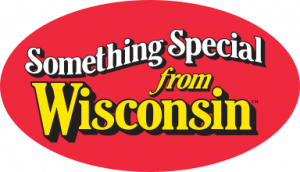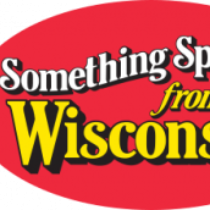
Food gifts are good gifts! for friends, for yourself, for the holidays and in the New Year. As my Mom used to say, "This is for me, from one who cares!"
Bakery and Other Specialties in Wisconsin, for example include: Apple Bread from La Crescent, Cherries from Door County, Kringle from Racine, Pasties from Hurley, Pickled Ham Hocks and eggs from Milwaukee, Sausage from Backalars and Pickles, Cheese, Cheese curds and Sausage from almost anywhere! What specialties are in your area?
Berries and Cranberries were harvested by native people who knew their health benefits. Phytochemicals found in berries and other foods with deep color are important in a plant-rich diet. Wisconsin is #1 producer of cranberries in the U.S., growing 59% of the cranberries used for juice, dried cranberries and more! Add some dried "crane" berries to whole grain oat granola or to a pinecone birdfeeder!
Beverages like Sprecher’s Root Beer and specialty sodas, Spotted Cow beer from New Glarus, Apple Cider from almost any Orchard Store like Bauer’s in La Crescent, and, of course fruits of the vine: wines, brews and hard beverages from local wineries, breweries and distilleries. Local people take pride in what they bring to the festivities and to the economy.
CSA (Community Support Agriculture) refers to a partnership between farmers who sell their home grown (often organic) produce, eggs, chicken, pork and more direct to the eaters, who serves as shareholders or subscribers. You pay before the season and begin getting a “share”, a box of food (or a couple of chickens!) at harvest time. Now is the time to consider trying this for next spring and summer! For more information ask around or go to the Know where your food comes from website.
Fish. Smelt in spring, trout in summer and perch through the ice in winter are catches we treasure in the Great Lakes and upper Midwest region. Check out the Red Cliff Fish Company who sell fresh, smoked and frozen fillets of Lake Superior fish. Yum!
Game Meats have always been a northern staple for families that knew how to hunt and prepare these lean proteins. Today, bison has become popular in tribes for its cultural and spiritual value. It is gaining recognition among non-natives as a low cholesterol meat as well as for its contribution to tribal economies. Check for it in your local co-op, small meat market or larger meat departments.
Honey is a healthy locally produced food. If you can’t buy from a farmer, check the label for its origin! Local honey is often given credit for increasing our immunity to common local weeds to which folks have allergies. It tastes great, too!
Local dairy, meats and produce Check out your local Food Co-Op for items sourced from local farmers and cooperatives like Organic Valley in La Farge, WI or Belgioso Cheese in Denmark, WI.
Maple Syrup is a flavorful ingredient that kept native diets calorie and mineral-rich through long winters. Once you taste locally produced maple syrup, you won’t go back to corn syrup with maple flavoring!
Wild Rice adds great nutritional and cultural value to any food gift and can support native tribes who harvest and process this “good berry” or “manoomin”, using traditional ways. Check out Native Harvest Ojibwe Products, a division of White Earth Land Recovery Project. Warming water temps are making the survival of this grass vital to the identity of Ojibwe people in Northern WI and MN. All efforts to reduce global warming will protect this high protein, high fiber spiritual food.
Story:
Locally grown foods have many benefits. The Wisconsin Local Food Organization tells us that they help:
* Develop and strengthen a connection between local farmers, chefs, and eaters
* Awareness about what grows around us
* Highlight personal and environmental benefits
* Put a face, a place and taste to our food
* Get people cooking again and foster healthier eating
* Experience and enjoy incredible food and meals
* Support local small business and their workers
* Keep dollars in the local community
* Help us identify with the land we live on and the culture of food production
Convenience has been a boon to the food industry since after World War II. Our mothers and grandmothers who once cooked from scratched were prime targets of advertising for all things easy from Jello and Swanson TV Dinners to menu items "in a mix" of all the food groups. In processing, fiber and its nutritional value are removed to make grains, for example, more shelf stable. Preservatives, additives, salt, sugar and even gases are added to make them tasty and long lasting for distribution around the country. But today, we can examine that system and get closer to the food and to the land.
Consider a convenience food (like chips, instant potatoes, cake mix, soda pop) that could be made from scratch in your kitchen. How could a natural food like nuts, sweet potatoes, frozen cranberry juice or a homemade baking mix add to your life rather than be an inconvenience. It may be a challenge to address in partnership with a friend or family member.
If you would like to be notified when we share new recipes, be sure to scroll to the bottom, provide your email address, check the box confirming you are not a robot, click on a few photos to prove it and click subscribe! You will then receive an email after each new post. Remember, we're always looking for new recipes, so keep sending them to ecopact@fspa.org!
The Seasoned Franciscan will be on hiatus for the rest of Advent and the Christmas season. Watch for a new post in mid-January!
Merry Christmas! Vicki





Post a Comment